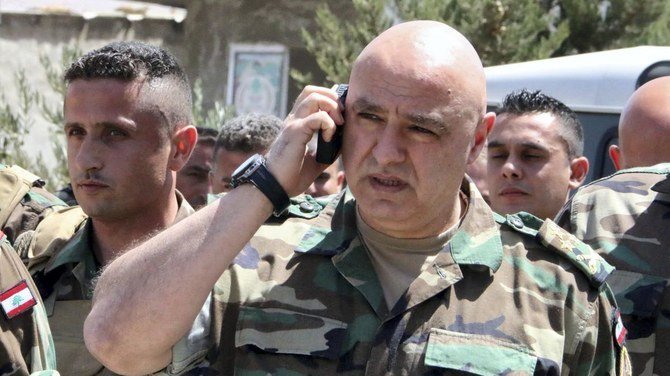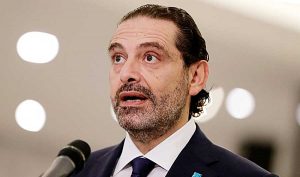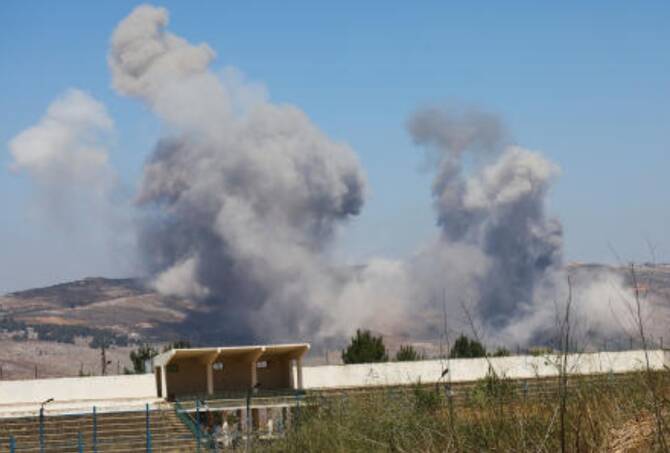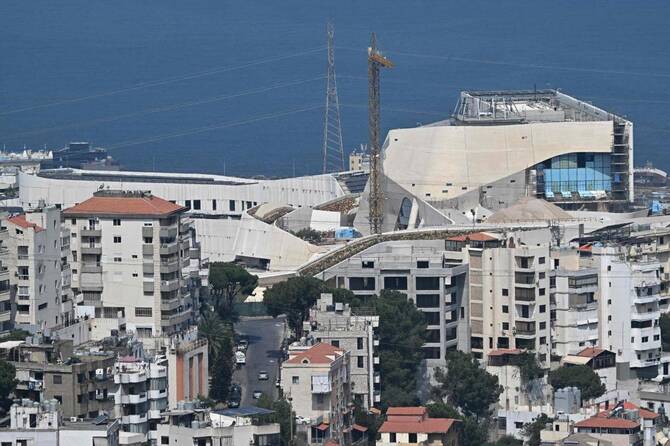Private companies and institutions allowed employees to leave work early on Friday so that they could get home before roads were blocked.
Angry crowds took to the streets for a second consecutive day to protest against fuel shortages and the continuing steep rise in the dollar exchange rate on the black market.
Demonstrations had broken out across the country on Thursday, immediately after Prime Minister-designate Saad Hariri announced his resignation after nine months of failed wrangling with President Michel Aoun over the formation of a new government.
The previous government resigned in August last year amid protests in the aftermath of the devastating explosion at Beirut’s port.
The Lebanese currency hit new lows in the wake of Hariri’s announcement, with dollars changing hands on the black market at a rate of more than 22,500 Lebanese pounds on Friday. The official government rate is just over 1,500 pounds.
The protests grew more fierce and violent on Friday, especially in poorer areas of Tripoli, such as Jabal Mohsen. Protesters destroyed property and burned tires. The army intervened, firing shots to disperse them.
According to the Lebanese Red Cross, dozens of civilian protesters were wounded as the army fired rubber bullets and rocks were thrown. Al Jazeera photographer Khaled Habshiti was injured by a grenade in Jabal Mohsen. The Red Cross said it sent three teams to help treat and move the wounded.
The angry activity and chaos on the streets stood in stark contrast with the state of inertia and anticipation that prevails on the political scene.
President Aoun has not yet set a date for parliamentary consultations to choose new prime minister designate to replace Hariri and resume the efforts to form a government. They are not expected to take place until after the Eid Al-Adha holiday next week.
Aoun said on Friday that “he will overcome the difficult circumstances.” He added that “nothing can bring the Lebanese down, even with all the hardships they are going through,” and he promised to “make all efforts to resolve the successive crises.”
Joanna Wronecka, the UN’s special coordinator for Lebanon, described the stalemate between Hariri and Aoun as a “setback” and expressed deep regret over “the inability of Lebanon’s leaders to reach agreement on the formation of a new government that is urgently needed to address the challenges.”
Adding that “there is no more time to lose,” she called for “swift measures to ensure the designation of a new prime minister, in line with constitutional requirements.”
Wronecka also stressed the need to form a government able to implement the reforms required to put Lebanon on the road to economic recovery ahead of free and fair elections in 2022.
The US State Department expressed concern over Hariri’s resignation. It said: “The political class need to put aside partisan differences, instead of trading blame, to form a government capable of addressing this concerning situation.”
The EU’s foreign policy chief, Josep Borrell, said he regrets “the ongoing political gridlock in the country and the lack of progress in the implementation of the urgent reforms.”
The National Federation of Employees’ and Workers’ Trade Unions in Lebanon called on “workers, farmers and low-income members to form local committees whose mission is to prepare for civil disobedience.”
The federation described this as “the perfect, and only, option to bring the political class down and hold it to account in the streets.”
It added that politicians are responsible for “the lowest points of the economic collapse: starvation, death, poverty, unemployment, and a salary lower than $30.”
The volatile dollar exchange rate caused chaos in Lebanese retail markets. Many shop owners decided to close their stores because they were unable to set a stable price for goods. Other sellers put the sale of their products on hold avoid losses.
A black-market money changer told Arab News: “Trade has been limited to selling dollars, as people are eager to make profits.”
He added that he has been surprised by the “continuous increase of the dollar exchange rate, controlled by the electronic platforms, despite the low demand for it.”
The protests continued on Friday night and were not limited to pro-Hariri Sunni areas; they also took place in communities that traditionally support Parliament Speaker Nabih Berri and his party, the Amal Movement.
An Amal supporter in Zokak Al-Blat told Arab News: “Aoun considers himself victorious. This must not persist.” He added that the president “must know that the resentment of the people is really great. He previously destroyed the country in order to remain president and what happened then? The same thing will happen now. He must not think, even for a second, that he is capable of controlling everything.”
A number of people in Beirut told Arab News that “the promise the president made to us has become true: we are living in hell.”
Tony, who owns a bakery, said: “If the situation persists, my family and I will starve. I laid off an employee because I was no longer able to pay him. The dollar exchange rate on the black market has reached 25,000 pounds and there is not one official that feels what we are going through.
“They told us we were headed to hell. They were right. This is hell. But what is next? Are there no solutions?”
Nadia, a Lebanese woman who was standing outside a public institution, said: “They all claim that they are worried about the country’s fate and that they are defending their sects and their interests.
“We do not want anything from them. Let them leave us alone. We cannot take it anymore.”
Mohammed, the owner of a barber shop, said: “The country is divided into two groups. The first group of people can take it because they are getting paid in fresh dollars. The second group, the one I belong to, is not even capable of leaving this cursed country.
“Politicians only care about their interests. The president is insisting on his son-in-law as the next president and Hezbollah controls us.”























